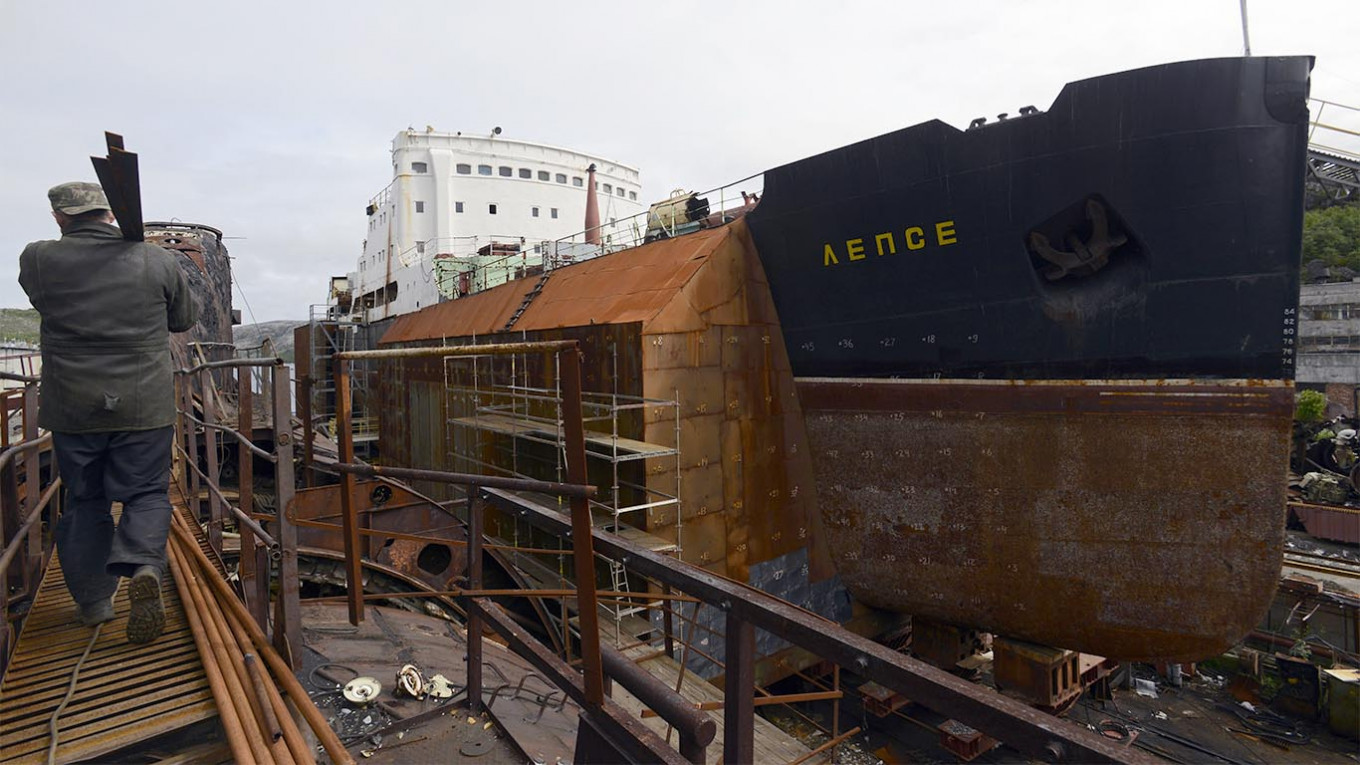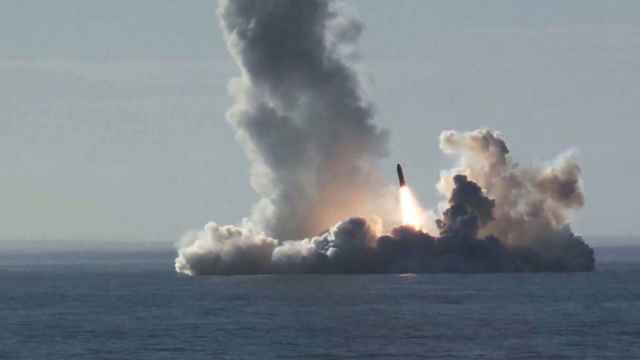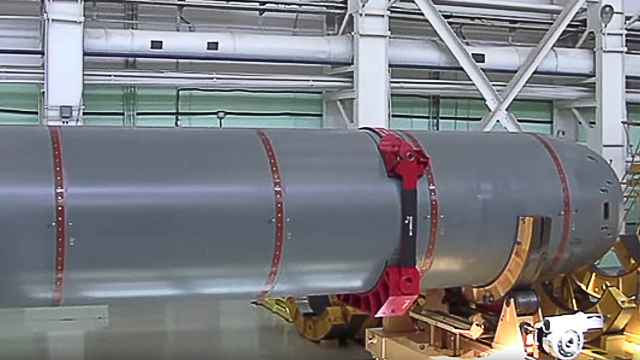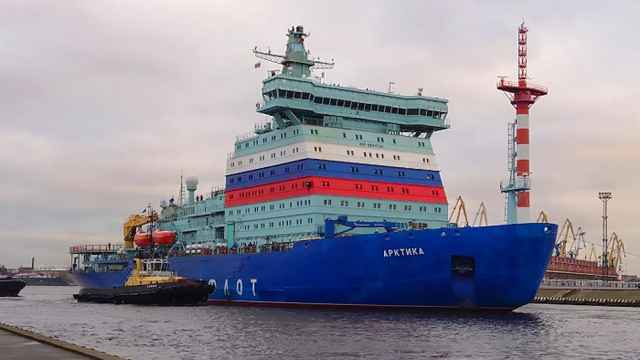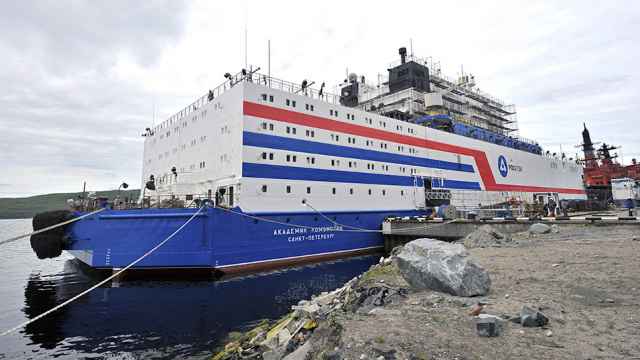An international cleanup effort has helped remove spent nuclear fuel from a service ship abandoned after an accident in northwestern Russia, the Norwegian environmental organization Bellona announced Wednesday.
The Lepse served the Soviet Union’s nuclear icebreaker fleet from 1934 until the 1980s, when it encountered rough seas and spilled highly radioactive waste inside its cargo hold. Decommissioning of the ship began in 2012.
The nuclear fuel posed “a serious danger to the people and the environment of the Barents Sea region,” said the European Bank of Reconstruction and Development (EBRD), which funds the effort.
The Lepse held 639 damaged and distorted spent nuclear fuel assemblies when it was taken out of service.
Bellona and the EBRD’s Northern Dimension Environment Partnership (NDEP) fund hailed the removal of spent fuel from the Lepse last month as a critical milestone in dismantling the decommissioned vessel.
“The successful final shipment of fuel is the culmination of over a decade of international collaboration to address the legacy of the Lepse,” EBRD’s director for nuclear safety Balthasar Lindauer said in a July 22 statement.
“This has been a technically complex and challenging task given the uncertainties associated with both the conditions of the old storage facility and spent nuclear fuel,” Lindauer said.
The EBRD said the spent fuels will be transferred to the Mayak nuclear facility in the Chelyabinsk region 3,500 kilometers to the southeast of the Arctic city of Murmansk.
The EBRD’s NDEP manages six other nuclear decommissioning funds, including the Chernobyl Shelter Fund.
The fund draws contributions from the European Union, Britain and Canada, as well as Belgium, Denmark, Finland, France, Germany, the Netherlands and Norway.
A Message from The Moscow Times:
Dear readers,
We are facing unprecedented challenges. Russia's Prosecutor General's Office has designated The Moscow Times as an "undesirable" organization, criminalizing our work and putting our staff at risk of prosecution. This follows our earlier unjust labeling as a "foreign agent."
These actions are direct attempts to silence independent journalism in Russia. The authorities claim our work "discredits the decisions of the Russian leadership." We see things differently: we strive to provide accurate, unbiased reporting on Russia.
We, the journalists of The Moscow Times, refuse to be silenced. But to continue our work, we need your help.
Your support, no matter how small, makes a world of difference. If you can, please support us monthly starting from just $2. It's quick to set up, and every contribution makes a significant impact.
By supporting The Moscow Times, you're defending open, independent journalism in the face of repression. Thank you for standing with us.
Remind me later.


